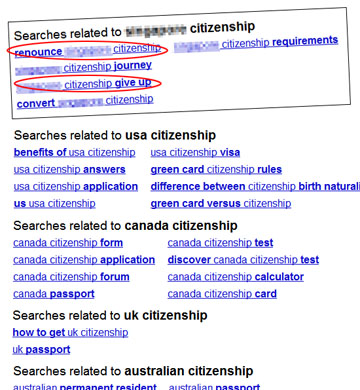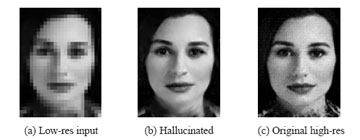|
| |
|
| |
|
|







|
|
TCHS 4O 2000 [4o's nonsense] alvinny [2] - csq - edchong jenming - joseph - law meepok - mingqi - pea pengkian [2] - qwergopot - woof xinghao - zhengyu HCJC 01S60 [understated sixzero] andy - edwin - jack jiaqi - peter - rex serena SAF 21SA khenghui - jiaming - jinrui [2] ritchie - vicknesh - zhenhao Others Lwei [2] - shaowei - website links - Alien Loves Predator BloggerSG Cute Overload! Cyanide and Happiness Daily Bunny Hamleto Hattrick Magic: The Gathering The Onion The Order of the Stick Perry Bible Fellowship PvP Online Soccernet Sluggy Freelance The Students' Sketchpad Talk Rock Talking Cock.com Tom the Dancing Bug Wikipedia Wulffmorgenthaler |
|
bert's blog v1.21 Powered by glolg Programmed with Perl 5.6.1 on Apache/1.3.27 (Red Hat Linux) best viewed at 1024 x 768 resolution on Internet Explorer 6.0+ or Mozilla Firefox 1.5+ entry views: 194 today's page views: 665 (118 mobile) all-time page views: 3400650 most viewed entry: 18739 views most commented entry: 14 comments number of entries: 1228 page created Sat Jul 12, 2025 23:16:35 |
|
- tagcloud - academics [70] art [8] changelog [49] current events [36] cute stuff [12] gaming [11] music [8] outings [16] philosophy [10] poetry [4] programming [15] rants [5] reviews [8] sport [37] travel [19] work [3] miscellaneous [75] |
|
- category tags - academics art changelog current events cute stuff gaming miscellaneous music outings philosophy poetry programming rants reviews sport travel work tags in total: 386 |

| ||
|
- reviews - Blogging while waiting for experiments to complete is an art...  (Source: Popular Online) A couple of years after referencing Freakonomics, the destined sequel, Superfreaknomics, is out (or has been for the better part of a year)! The authors claim that it's better than the original, which I disagree with, if only because Freaknomomics was so novel. There's still lots to be mined in them thar hills of behavioural economics, though, their root of which is "humans respond to incentives", and which in academic form gives rise to stuff working in practice, but not in theory (from Chapter Three). While not redefining the borders of innovation (while being sold there), the book still deserves at least a quick run-through. The first chapter is positively conventional though, and that convention is that sex sells (but is not supposed to be sold - or in the wise words of George Carlin: "Selling's legal. F**king's legal. Why isn't selling f**king legal?"). The Oldest Profession  No Pleasure Without Pay (Source: Discworld & Pratchett Wiki) Field sociologist Sudhir Venkatesh is back at it again after his attachment to street gangs, which should make chatting (at a price, obviously) with, ahem, ladies of negotiable affection (LONA) a cakewalk in comparism. But some background first:
In effect, the greatest threat to ladies of negotiable affection are the ladies of unpaid affection, who achieve more selectivity over their partners, higher social status and intangible treats and trinkets in lieu of hard cash. Other amusing observations:
A "smart, capable, technically sophisticated (computer programmer), physically attractive, curvaceous and friendly blonde", she dipped into the market more out of curiosity than anything, and landed a nice dentist who lectured her on the do's and don'ts of the game on her first try - and gave her US$200 on top of that. She soon grew into the job, and happily discovered that even raising her hourly wage to US$400 didn't affect demand, which mainly came from married, middle-aged white men. If there's a take-home lesson from this, I suppose it's that quality affection is sadly rare. Or that all men are pigs. Whatever. [Skipping ahead to the last chapter, experiments at Yale with capuchin monkeys (who are probably good substitutes for humans given that they are fixated on food and sex) demonstrated that they can develop an understanding of money - using coins to trade for food - and inevitably hit upon the concept of using the coins to trade for sex too. So it seems that, in some strange genetic fate, monkeys are pigs too]  The Google verdict on citizenships (some names blurred for privacy reasons) [While we're on the case of supply and demand: The local authorities recently floated the idea of pushing some current Permanent Residents to take up citizenship. Immigration drives aren't all that rare, but the wholesale conversion of qualified (since the government wants them as citizens) non-citizens who are not all that eager to become citizens (since they are still PRs), is. This might provide some clue to the supply vs. demand status of citizenship here. Methinks there is much to be done at both ends of the equation] The Most Unpopular Professions The actual title in the book is "Why should suicide bombers buy life insurance?" (half-joking answer: so they can associate with people who are even less liked than them). Well, the serious answer is that a (unnamed, for security reasons) researcher did some data mining and discovered certain traits common with terrorists:
The trouble is that such an algorithm would have to be superbly accurate to be of any use - even a 99% accuracy would churn out millions of false positives (i.e. more-or-less honest citizens, from a population of say 300 million). Apparently, the researcher has tightened his down to the point where it discovered five near-certain terrorists, and about 25 more very suspicious people, a good job I would say. Unfortunately, this revelation of their distinctive banking habits should cause any would-be terrorist with half a brain to try and merge more seamlessly into the general populace (by, say, actually cashing some form of regular paycheck, and buying some frivolous things now and then). There's also the problem that one's name turned out to be one of the strongest predictors for suspected terrorism; Other things being equal, having both first and last Muslim names means that a person was 250 times more likely to be a suspected terrorist than a person with no Muslim names, which is certainly unfair on law-abiding Muslims. The obvious dilemma here is that the best strategy in terms of finding the most terrorists would be to focus the screening efforts on people who meet that ethnic/religious classification (but it can be argued that the drawbacks of resentment among those groups make such profiling not worth the effort). The other side of the coin, true random screening, would however inconvenience 80 year-old grandmas far in excess of their capacity for aircraft hijackings. Rock and hard place. [Outside observation one: Terrorism has, sadly, been extremely successful in imposing costs on democratic societies. For what amounts to spare change, they have managed to force governments to spend hundreds of billions on counterterrorism measures (sometimes almost laughable, like the requirement to remove one's shoes for inspection after Richard Reid's shoe bomb, and many other cases of fixing the pen after the sheep have escaped) The fundamental problem is that, as with assassins, the main difficulty in terrorism is not doing the deed, but getting away; A reasonably smart terrorist who can pick his targets and operate under pressure is almost certain to succeed. Think: How likely is it that a well-dressed businessman-type with a briefcase bomb would be stopped from getting on the subway in any major city? Answer: Almost never. The only direct solution would be economy-crippling comprehensive searches, huge losses of privacy and xenophobia if appropriate, which would in a way hand victory to the terrorists. Thankfully, the intersection between absolute fanaticism and operational intelligence is as yet not very big] [Outside observation two: More on data mining, or more precisely, extrapolation. A few years ago, I wrote on how information could be discarded from a facial image (through mosiacing) to make reconstruction impossible. Then, recently, I came across the technique of face hallucination, which guesses at the original face given a low-resolution input image (effectively a mosaic) - and pretty well, I would say!  (Source: Face Hallucination: Theory and Practice) While this does not invalidate my point (since the reconstruction breaks down once the tile size is large enough, and facial features start out indistinct), it does illustrate the potential power that reconstructive techniques can conceivably attain - to be really safe from identification, blacking out the entire face would be ideal, at least until algorithms exist for generating hypotheses from facial shape] The Nicest Profession One of them would have to be a professor in economics, or psychology - few other jobs give the opportunity to give money away regularly in the name of improving humanity. The heart of the third chapter is about some laboratory games, most notably the classic Ultimatum and Dictator. In two-player Ultimatum, the first player proposes a split of a sum of money, and the second either accepts it, in which case the players share the money as proposed, or rejects it, in which case both leave empty-handed. If both players operate on pure logic, the first player would offer the second the bare minimum (say, a single penny), knowing that the second player would still accept it since it would be better than nothing. In practice, however, it rarely works this way (for a deeper explanation, refer to the Wikipedia link). Dictator is essentially the same as Ultimatum, except that the second (anonymous) player does not get any say. Therefore, the first player has absolute control over how much each of them gets. But in such a case, wouldn't the first player always claim everything? Well, the answer is... no! The experiment was repeated in many diverse societies, and people usually gave some part of "their" money away - 20% on average. It sure seemed that humans were intrinsically heart-warmingly altruistic (hooray!), until an economist called John List entered the scene and actively wondered why nobody had ever given him money anonymously. He added a wickedly simple twist to Dictator: Now, both players were given the same amount - but the first player could still give any sum, or if he chose to, take any sum from the other (still anonymous) player. The result: Only 10% of the participants gave any money at all, 60% took some amount from the second player, while 40% took all of the second player's money. Also, bear in mind that this was in an experimental setting, where the participants were aware of being watched (which List had found caused them to act more nicely). The story here seems to be that experimenters may ask the wrong questions, and in doing so too readily accept the answers they were looking for. [N.B. It does seem however that the final distribution of the money appears similar in both Dictator variants - so is it that, if given the power, most people are alright with others having a bit after all the redistribution is done, as long as they get the lion's share?] The saving grace was that when participants were made to work for their money, and led to believe that the other player had worked too, fully two-thirds refused to take a single cent from the other player (though 28% still did). Nothing like honest work to engender appreciation. To be continued...
Pretend punting challenge at P$317/P$300, thanks to Chelsea doing the honours. This week, the necessarily unbiased bookmakers have put Man United as more likely to beat Liverpool (1.65 odds) than Man City are to beat Wigan (1.70), which appears... strange. Surely City can't slip up again? P$100 on Man City to beat Wigan (at 1.70) Next: Deadline Extended
law said... Eh? Why you also forgot to include your visits to the Lup Sup KTV's?
gilbert said... i play my HOR? card and whistle innocently
Trackback by how make your dick grow
|
||||||||||||||||
 Copyright © 2006-2025 GLYS. All Rights Reserved. |
||||||||||||||||